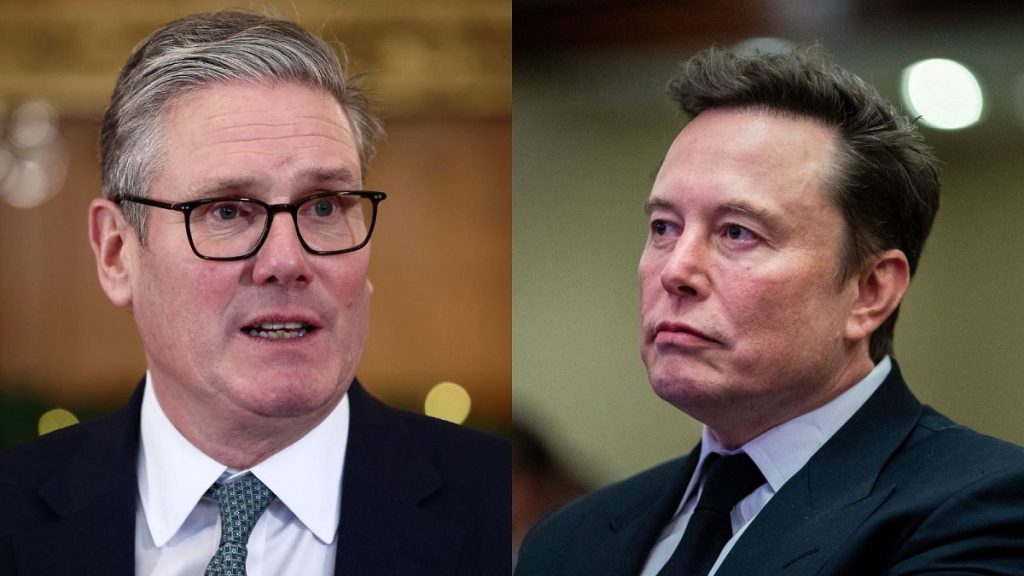Elon Musk’s recent social media activity has reignited a complex and sensitive political debate in the UK concerning historical child sexual exploitation. His accusations against senior Labour figures, including Prime Minister Keir Starmer and Safeguarding Minister Jess Phillips, have drawn widespread condemnation and raised concerns about the spread of misinformation. Musk’s claims, linking Starmer to a supposed cover-up of “mass rapes” and labeling Phillips a “rape genocide apologist,” lack substantiation and appear to be based on a selective interpretation of events. This intervention follows Musk’s unexpected call for Nigel Farage’s resignation as leader of Reform UK, despite previous indications of substantial financial support, and his endorsement of far-right activist Tommy Robinson, currently imprisoned for contempt of court. These actions collectively highlight Musk’s increasingly unpredictable and controversial engagement with British politics.
The scandal at the heart of this controversy involves the systemic grooming and sexual abuse of predominantly vulnerable young girls by gangs of men, largely of Pakistani heritage, in several English towns over decades. The most prominent cases emerged in Rotherham, Rochdale, and Oldham, revealing a pattern of exploitation and a failure by authorities to adequately protect victims. A 2014 report by Professor Alexis Jay estimated that at least 1,400 children were abused in Rotherham alone between 1997 and 2013, exposing significant institutional failings, including a reluctance to address the ethnic dimension of the crimes for fear of being perceived as racist. A subsequent independent inquiry led by Professor Jay concluded in 2022 that such organized abuse was endemic across England and Wales, prompting a series of recommendations for reform.
Musk’s involvement stems from Jess Phillips’ rejection of a government-led inquiry into similar allegations in Oldham, preferring a locally-managed investigation. This decision, supported by Professor Jay and former chief prosecutor Nazir Afzal, who emphasized the need to implement existing recommendations rather than initiate new inquiries, has been seized upon by Musk and some opposition figures as evidence of a cover-up. They argue for a national inquiry, despite the extensive work already undertaken. Musk’s inflated claims of “hundreds of thousands” of victims, while unsubstantiated, contribute to a heightened sense of alarm and distrust. While the true number of victims remains unclear, thousands have testified before the independent inquiry, and a dedicated taskforce continues to provide support.
The attempt to implicate Keir Starmer is based on his tenure as head of the Crown Prosecution Service (CPS) from 2008 to 2013. During this period, the CPS initially decided not to prosecute alleged members of a grooming gang in Rochdale due to concerns about the reliability of the main victim’s testimony. This decision was later overturned by Nazir Afzal, leading to convictions. While the initial CPS decision was criticized, Starmer himself was not implicated in any wrongdoing. In fact, Afzal has publicly commended Starmer’s support for prosecuting the perpetrators. Starmer’s record at the CPS includes reopening closed child abuse cases, securing the first prosecution of a grooming gang, and revising CPS guidelines to remove biases that hindered prosecutions. Professor Jay’s 2014 report acknowledged Starmer’s efforts in updating CPS guidance to better address child sexual exploitation cases.
Furthermore, Starmer’s revisions to the CPS guidance addressed problematic practices that had previously hampered prosecutions. These changes included eliminating considerations of victims’ attire, behavior, substance use, and promptness of reporting, factors that had often been used to discredit their testimony and prevent successful prosecutions. This move demonstrated Starmer’s commitment to improving the CPS’s handling of child sexual abuse cases and creating a more victim-centered approach to prosecution. By removing these discriminatory factors, the CPS was able to pursue cases more effectively and secure convictions against perpetrators, significantly impacting the fight against child sexual exploitation.
Musk’s engagement with British politics extends beyond the grooming gangs scandal. His endorsement of Tommy Robinson, a controversial figure known for anti-Islam activism, and his fluctuating support for Nigel Farage, leader of the right-wing Reform UK party, raise questions about his political motivations and affiliations. His surprising call for Farage’s resignation, following reports of a potential $100 million donation to Reform UK, further underscores the unpredictable nature of his political interventions. Similarly, his participation in discussions surrounding riots in the UK following the murder of three young girls in Southport, and his endorsement of the far-right Alternative for Germany (AfD) party, demonstrate a broader pattern of engagement with right-wing political figures and movements across Europe. These actions raise concerns about the potential influence of his platform and the spread of misinformation, particularly in sensitive political contexts.














